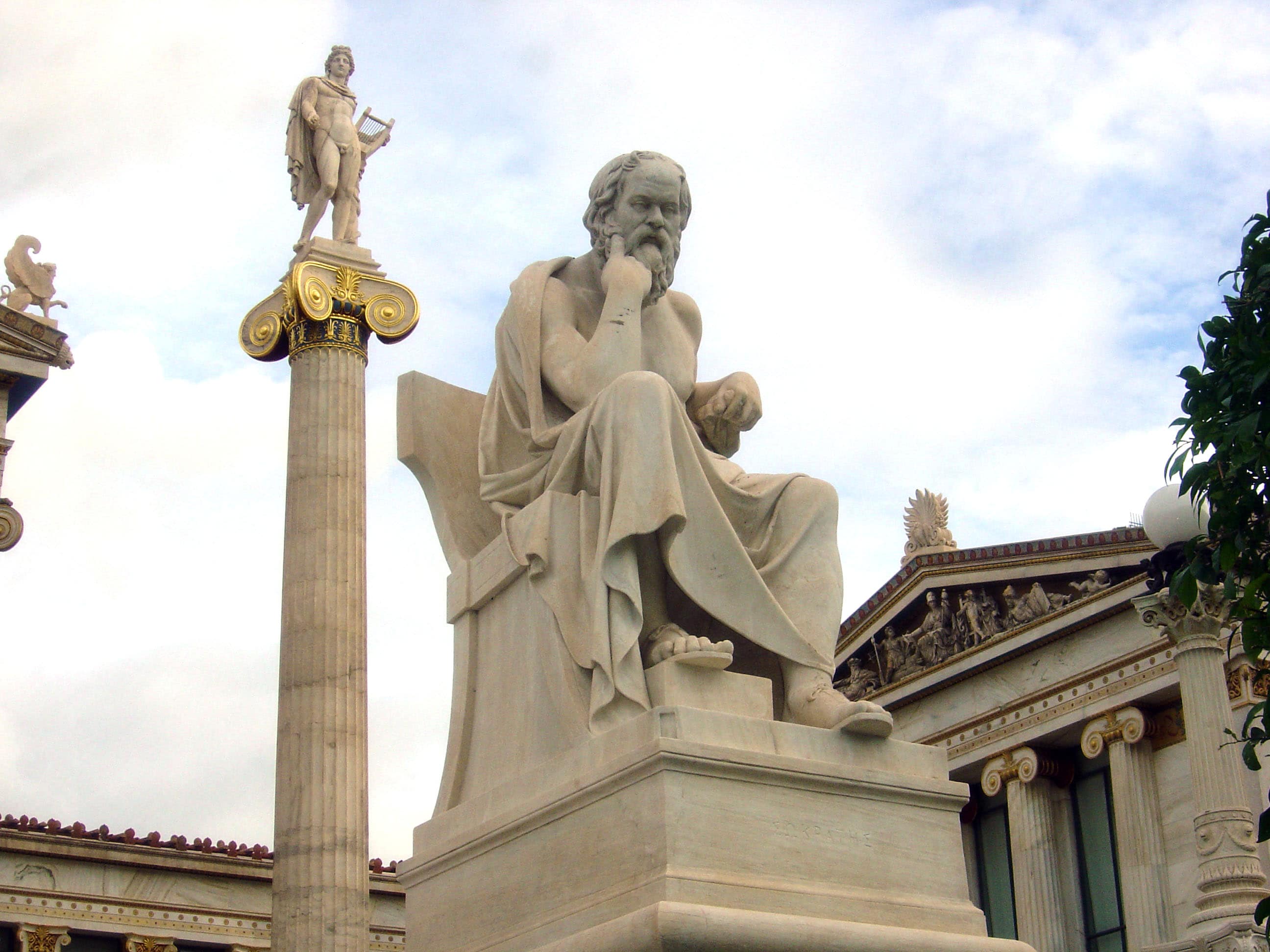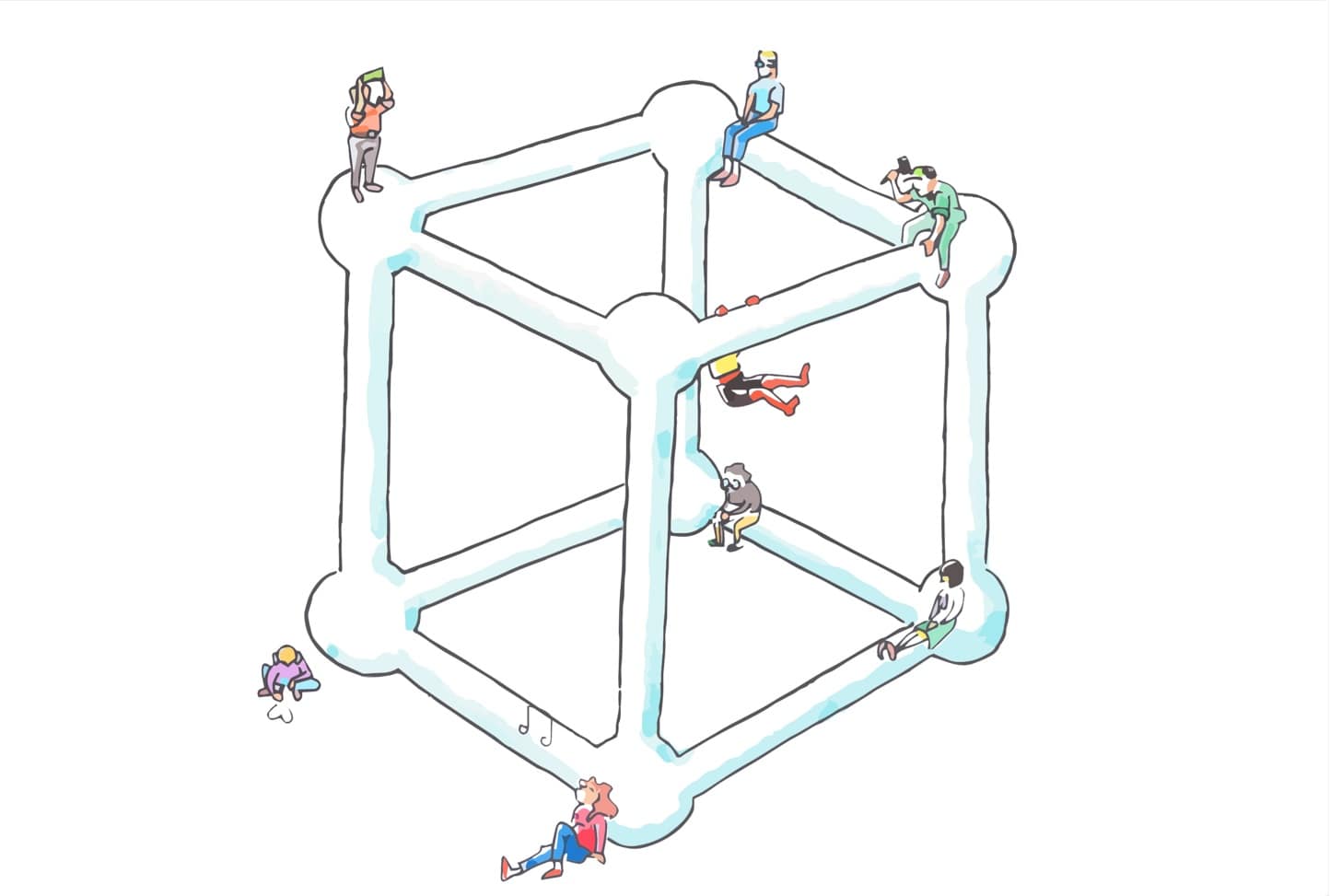
Socrates, what do you think about stress?
Carefully hidden from the public, the Department for Theory and History of Psychology here in Groningen owns a device of inestimable value: a time machine. As I had heard some rumors about this time machine, I decided to spend six weeks in Groningen to verify its existence and examine its usefulness. I was not disappointed: I found the time machine locked up in a dark room in the basement. Spontaneously, I traveled back to ancient Athens and arranged an interview with Socrates.
During my training as a psychologist, I have been taught to regard experimental research as the Holy Grail of science. Therefore, I don’t really care about Socrates’ answer to the question of how to achieve justice or how to lead a good life. Instead, I wanted to talk with him about stress. This turned out to be more difficult than I had expected. At first, Socrates didn’t get what I was saying. It took me a while until I realized that he is not familiar with the stress concept. That is no wonder: Although describing our daily hassles by referring to the stressfulness of our lives feels completely natural for us, stress is a relatively new concept that has evolved during the second half of the 20th century. Hence, I had to introduce Socrates to the contemporary stress concept – and I tried to do it accurately.
I began with describing the physiological and endocrinological mechanisms constituting the stress response and continued with elaborating on cognitive stress models and coping strategies. Apart from that, I also mentioned the various ways in which using the stress concept has changed our behavior and our thinking. We can go to a doctor to be put on sick leave due to stress. We have stress management seminars and wellness weekends, psychotherapists to talk to and relaxation techniques to be learned. We can use a stressful day at work as an excuse not to tell our children their bedtime story or as an explanation why we are always fighting with our partner.
“That’s interesting,” Socrates interrupted me. “Stress, as you have defined it, seems to be accompanied by and maybe even bound to bodily reactions – but it also seems to be unthinkable without the manner in which you relate to those reactions, the way you frame, interpret, guide, and organize them.”
“I am not sure I understand that.”
“Well,” Socrates said smilingly. “Does my body possess the biological mechanisms which you have described as the key elements of your body’s reaction to stress?”
“Of course it does!”
“So, what do you think: Am I stressed out sometimes?”
“I guess so.”
“I see. Can I be put on sick leave, if things are getting too much?”
“No, you can’t.”
“Can I go to a stress management seminar to learn coping strategies and relaxation techniques?”
“No, you can’t.”
“Can I book a wellness weekend or see a psychotherapist?”
“No, you can’t.”
“I see,” Socrates said and made a short break. “When you explained the stress concept to me, why didn’t you stop after describing the biological mechanisms?”
“Hm. I don’t know. Maybe … maybe because the stress concept can’t be understood adequately without mentioning the social practices it is involved in.” I kept on thinking. “But you don’t have those social practices in Athens.” I added.
Being stressed out has become but not always been ›a way to be a person, to experience oneself, to live in society.
“Exactly,” Socrates said. “Being stressed out has become but not always been ›a way to be a person, to experience oneself, to live in society.‹* I can’t experience myself as being stressed out, but you can. For me, being stressed out is not a way to live in society, but for you, it is. Human beings of all times and cultures are confronted with difficult and overwhelming situations – and human beings of all times and cultures have developed strategies how to overcome fear and despair. But only you in the 21st century have labeled these situations stressors, and dealing with problems coping. You can’t understand our lives and our discourses by using your categories of thinking and the vocabulary of your discourses. The stress concept is not a God-given truth, it is a scientific theory embedded in a broader historical and societal context. That is not to say that stress is a superstitious belief of your modern societies – but it is to say that we should choose our words carefully whenever we talk about other times or cultures and their hardships.”
Unfortunately, my time was up at this point. So we didn’t have the chance to discuss how people in ancient Greece have operationalized and discursivized the hardships we call stressors nowadays. But as time traveling is fun, I might do it again and try to find out.
* I don’t know how this is possible, but Socrates quoted Ian Hacking’s “Kinds of people: Moving targets” (2007, p. 299) here.
Reference:
Hacking, I. (2007). Kinds of People: Moving Targets. Proceedings of the British Academy, Volume 151. An earlier version of the lecture as it was read at the British Academy on April 11, 2006 is freely available here.
Image rights:
Photograph by DIMSFIKAS published under the Creative Commons Attribution-Share Alike 3.0 Unported license.



